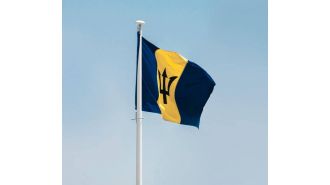A map shows the 10 most polluted areas in England.
The situation is not favorable.

England has been found to be one of the most nature-depleted places in the world. Recent research conducted by environmental organization Friends of the Earth has revealed that more than a quarter of neighborhoods in England are facing dangerously high levels of pollution. This pollution, which includes water, air, noise, and light pollution, poses a serious threat to wildlife and endangers the survival of important British species like pollinating bees and native bats.
But what exactly are pollution hotspots? These are areas where all four types of pollution have exceeded safe levels. For example, some areas have sewage being dumped into waterways, which can be deadly for fish. In other places, noxious fumes from air pollution can reduce the ability of honey bees to smell by up to 90% at just a few meters away. Excessive noise pollution in certain areas can also disrupt communication and make it difficult for animals like birds and reptiles to find food.
The research conducted by Friends of the Earth found that a significant number of neighborhoods in England are breaching two or three of the pollution thresholds, with none of them remaining unscathed. This paints a concerning picture of England as one of the most nature-depleted countries in the world. In fact, Friends of the Earth reported that nearly one in six species in the UK is facing extinction.
In a map released by the organization, it was revealed that the top neighborhood with the highest concentration of pollution levels is located in London, specifically in the area of Chelsea and Fulham. However, it's important to note that not all hotspots are situated in the bustling capital. The report also highlighted other areas like Salford, Worsley, and Eccles in Greater Manchester, as well as Vauxhall, Camberwell, and Battersea in London.
The alarming findings of the research show that pollution is not only harmful to wildlife, but it also has severe consequences for human health. The report states that air pollution is responsible for around 25,000 deaths annually in England, and it poses a particular danger to children, older people, and those with respiratory or heart conditions. This is a pressing issue that demands immediate attention from the government.
Friends of the Earth is calling for a new Environmental Rights Act to be introduced, which would ensure the protection of a healthy environment for all citizens. This would also hold regulators and public bodies accountable for the multiple layers of pollution that are plaguing our neighborhoods. As Sienna Somers, a nature campaigner at Friends of the Earth, pointed out, what harms wildlife often harms people as well. The impact of pollution on our environment is something that we cannot ignore, and it's time for action to be taken.
The report also sheds light on the devastating effects of pollution on important species like otters, dippers, Atlantic salmon, and mayflies. These animals, which are crucial indicators of a healthy environment, have little protection against the raw sewage, toxic chemicals, and slurry that are constantly being pumped into their habitats. As sewage spills into rivers, it leads to the growth of algal blooms, which deplete oxygen levels in the water and suffocate fish and other wildlife.
It's clear that pollution is a pressing issue that affects both humans and wildlife. The responsibility falls on all of us to make changes and hold polluters accountable for the harm they cause. As Sienna Somers stated, stronger laws and regulations are needed to ensure that polluters are forced to clean up their mess. It's time to take action and create a cleaner and healthier environment for all.










